Conquer Stress and Anxiety with CBT: Get Your Happy Back
CBT stands for Cognitive Behavioral Therapy and it's a great way for the elderly to stay sharp and healthy. But it is also helpful for anyone who suffers from stress, anxiety or anger issues. If you need help or have a loved one who does check out our review of 6 books on the subject.

Are you looking for a way to help the elderly in your life cope with the challenges of aging? Cognitive Behavioral Therapy (CBT) is an evidence-based approach to helping individuals of all ages manage their mental health.
Cognitive behavioral therapy (CBT) is a form of psychotherapy that is used to treat a variety of mental health issues. It is based on the idea that our thoughts, feelings, and behaviors are all interconnected and can be used to change our emotional state.
CBT is used to help people learn how to identify and manage their thoughts, feelings, and behaviors in order to achieve their goals and improve their overall wellbeing.
It is often used to treat anxiety, depression, eating disorders, and addiction. CBT can be used by individuals, couples, and families.
CBT can also help seniors become more aware of their thoughts and feelings, and then find ways to manage them in a healthy and productive way. For the elderly, CBT can be especially beneficial in helping them cope with the physical and emotional changes that come with aging.
Get ready to learn more about CBT and how it can help you or a loved one thrive!
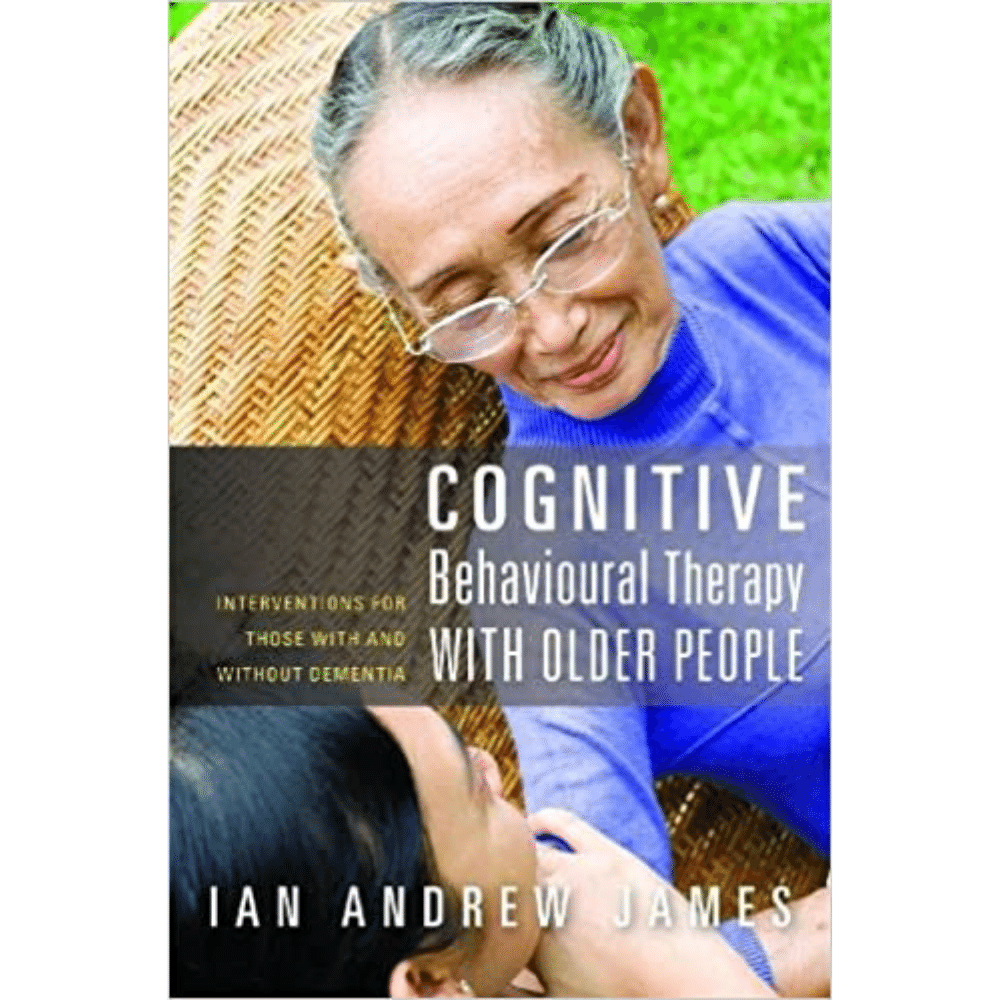
Cognitive Behavioral Therapy with Older People: Interventions for Those with and Without Dementia
Paperback – January 6, 2010
Why We Chose This Book:
Cognitive Behavioral Therapy with Older People: Interventions for Those with and without Cognitive Difficulties is the must-have book for any therapist who works with an elderly clientele.
It is packed with key information on how to adapt CBT to the diverse needs of elderly clients, whether they have cognitive difficulties or not.
It provides step-by-step guidance on how to assess, formulate, and implement successful CBT interventions.
With practical advice based on real-life case studies, this book will help both trainees and experienced therapists to provide the best possible care.
What You Should Know:
This book also covers how to work therapeutically with people with dementia, particularly those living in care. It provides detailed descriptions on how to help caregivers who are faced with challenging behaviors.
It also covers relevant material for therapists working across all age ranges and is an excellent resource for those looking to understand and provide CBT with the elderly.
Get your copy of Cognitive Behavioral Therapy with Older People: Interventions for Those with and without Cognitive Difficulties today and start providing the best possible care for your elderly clients or loved one.
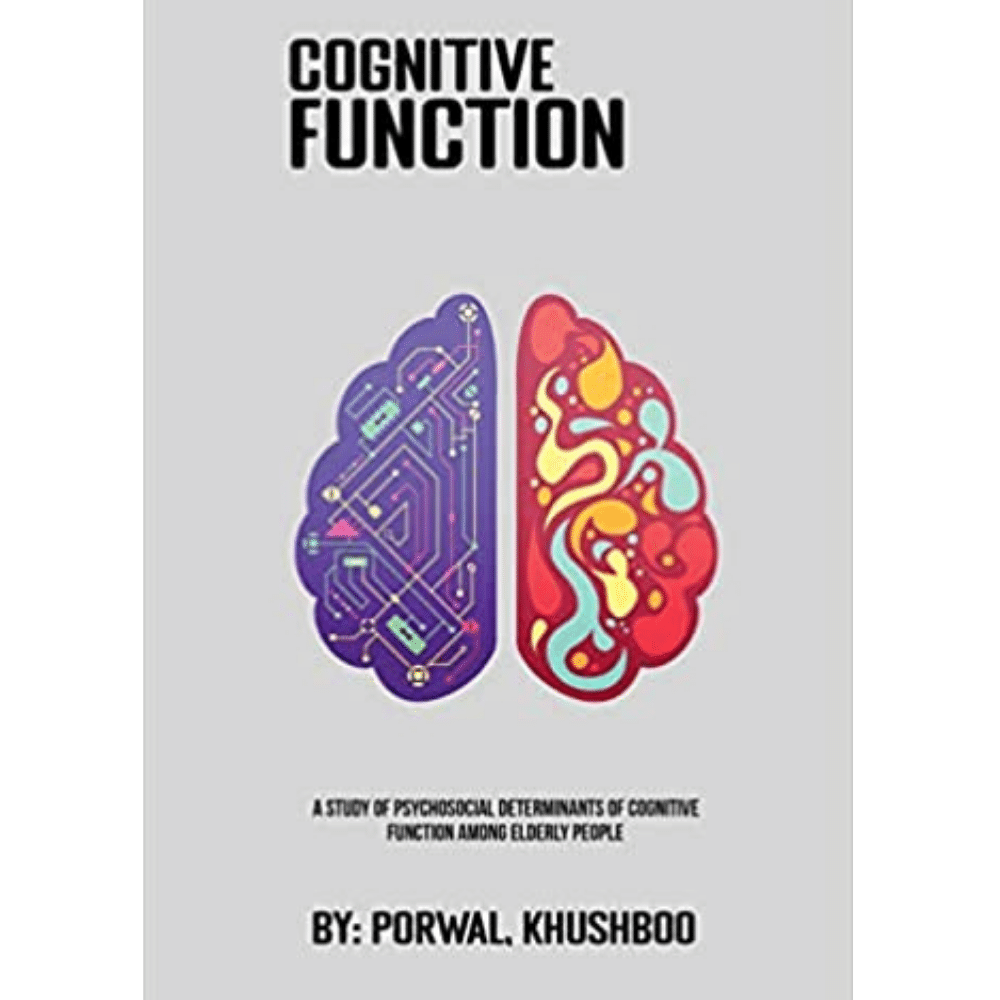
A Study of Psychosocial Determinants of Cognitive Function Among Elderly People
Paperback – August 7, 2022
Why We Chose This Book:
Caring for the elderly is an important responsibility, and studies of psychosocial determinants of cognitive function among the elderly can help us better understand their unique needs.
This study takes into account not just the biological aspects of senescence, but also the psychological and social aspects as well. It also looks at the various theories of aging, from genetic theory to oxidative damage theory, in order to better understand the process of aging and its effects on cognitive function.
What You Should Know:
This study is an invaluable tool for those looking to better care for their elderly family members and friends. By taking into account both the biological and psychosocial aspects of aging, it provides valuable insight into how to best provide care and support to those who need it.
The study also sheds light on the importance of keeping elderly people engaged in meaningful activities and social interactions, as this can help to improve their cognitive health and well-being.
With this knowledge, we can better provide our elderly loved ones with the care they deserve.
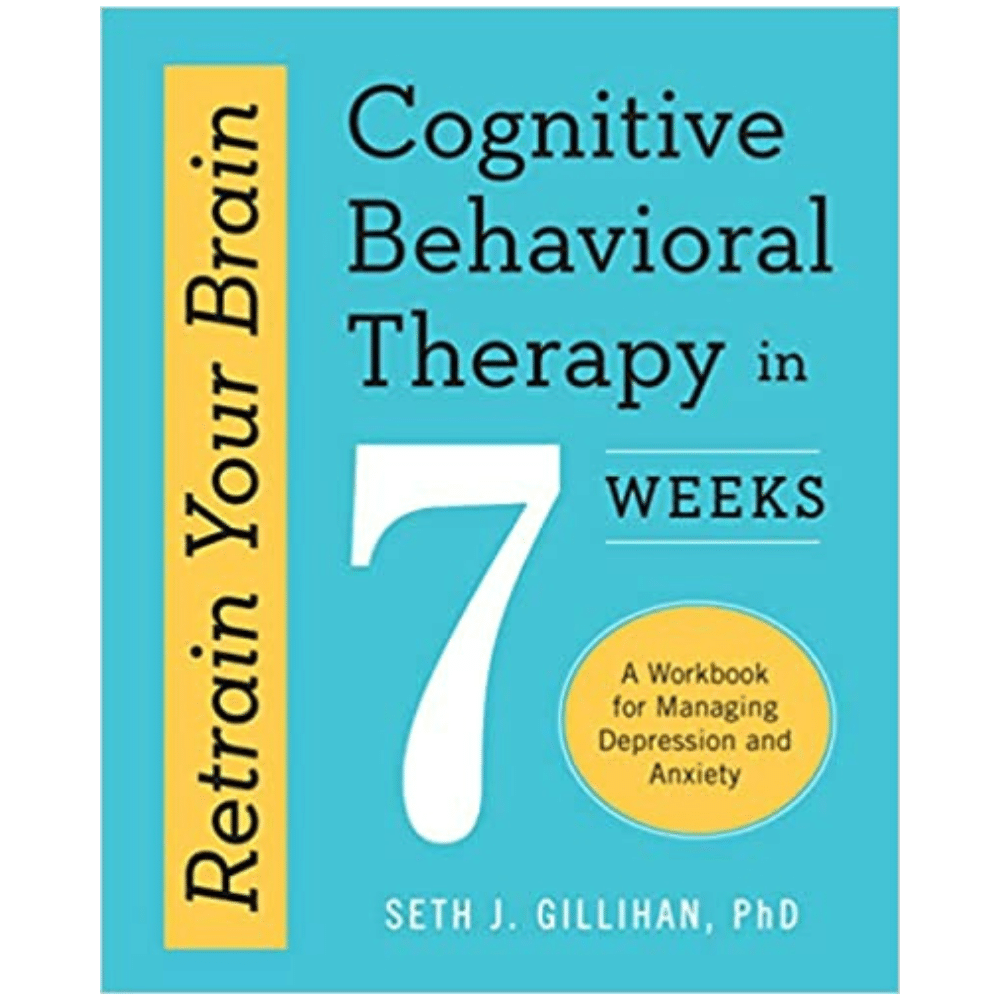
Retrain Your Brain: Cognitive Behavioral Therapy in 7 Weeks
A Workbook for Managing Depression and Anxiety Paperback – October 18, 2016
Why We Chose This Book:
Retrain Your Brain: Cognitive Behavioral Therapy in 7 Weeks is a revolutionary self-directed 7-week plan for managing anxiety and depression using cognitive behavioral therapy.
Developed by Psychologist Dr. Seth Gillihan after 15 years of successfully treating patients using cognitive behavioral therapy, it provides practical CBT techniques that can help you feel better.
The unique weekly structure of this therapy workbook is designed so each activity builds on the previous week’s work as you apply these techniques in your daily life. It also provides relatable, real-life examples to make the information and activities more accessible to CBT newcomers.
What You Should Know:
Cognitive Behavioral Therapy (CBT) is one of the most effective techniques for finding relief from depression and anxiety.
This workbook teaches you how to identify and replace thought patterns and behaviors that aren’t working with new ones that work better. You can create a CBT tool kit to help you get through feelings of depression and anxiety and realize your full potential.
It is great for adults, kids, and teens alike, so don’t hesitate to take the first step to finding relief and discovering the power of cognitive behavioral therapy today with help from Retrain Your Brain.
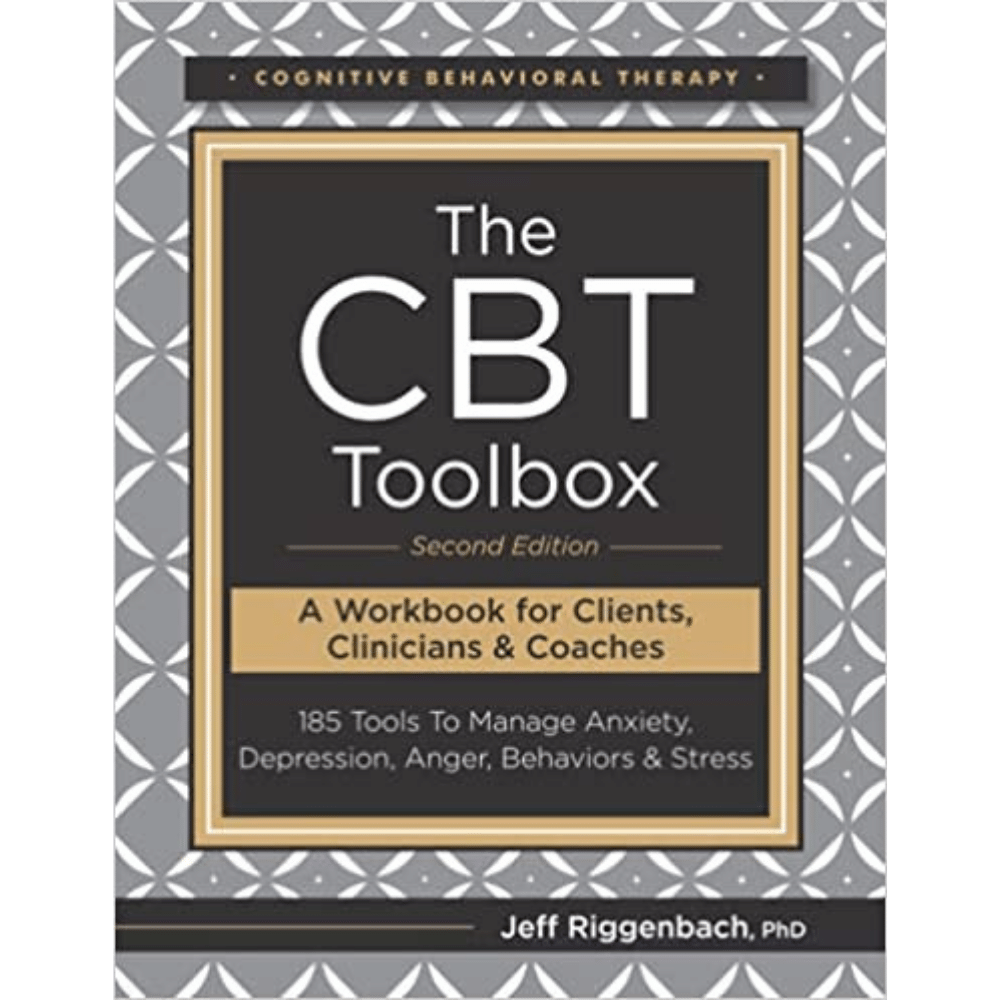
The CBT Toolbox, Second Edition
185 Tools to Manage Anxiety, Depression, Anger, Behaviors & Stress Paperback – May 20, 2021
Why We Chose This Book:
The CBT Toolbox, Second Edition is a must-have resource for mental health clinicians, coaches, and clients alike.
Developed by renowned psychologist, Dr. Jeffrey Riggenbach, this go-to resource contains 185 tools to address unhelpful thinking patterns and implement practical, evidence-based strategies to help meet goals and live a more intentional life.
With reproducible and ready-to-go exercises and activities for in-session, homework, or self-improvement, The CBT Toolbox is an invaluable resource for anyone looking to manage anxiety, depression, anger, problem solving, daily obstacles, addictive behaviors, stress, goal setting, time management, and dealing with difficult people.
What You Should Know:
The CBT Toolbox is user-friendly and easy to use. It is suitable for a wide variety of professionals, including mental health clinicians, coaches, teachers, and counselors.
Each tool is easy to read and understand and has the potential to provide meaningful and lasting change. The second edition also enhances Dr. Riggenbach's existing toolbox with even more tools to help people live better lives.
Get your hands on The CBT Toolbox, Second Edition today and start improving your mental health and well-being!
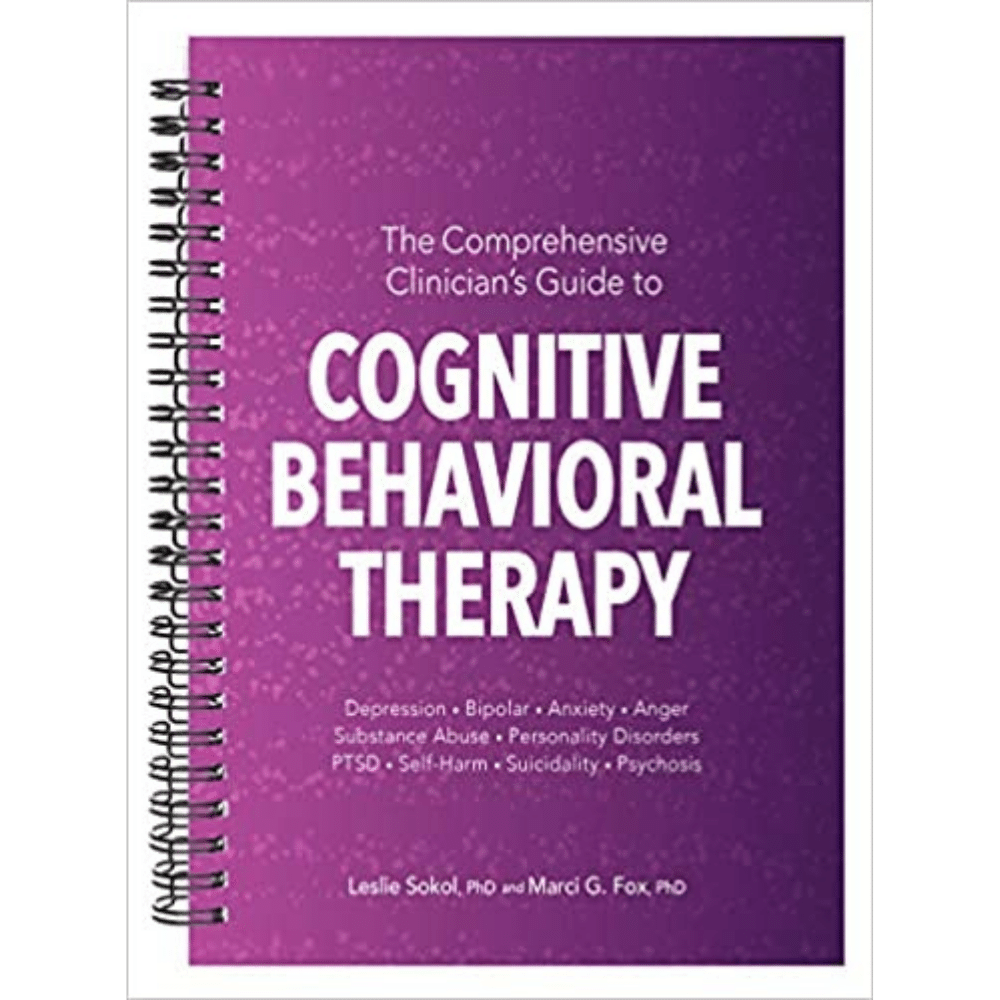
The Comprehensive Clinician's Guide to Cognitive Behavioral Therapy
Spiral-bound – November 12, 2019
Why We Love It:
The Comprehensive Clinician's Guide is the perfect tool for anyone looking to learn more about Cognitive Behavioral Therapy. Written by experts Drs. Sokol and Fox, this workbook is filled with practical, easy-to-understand tools that make learning and putting theory into practice easier.
It has worksheets, coping cards, step-by-step plans and activities to help clients become their own therapist and sustain recovery from a variety of issues.
What You Should Know:
This guide is a must-have for mental health professionals, students, trainers, supervisors, teachers and clinicians of all levels.
It provides comprehensive and up-to-date information about CBT and helps teach clients effective coping skills to build their confidence and eliminate self-doubt.
With this guide, you'll be able to help clients with depression, bipolar disorder, anxiety, anger, substance abuse, personality disorders, PTSD, self-harm and suicidality, and psychosis.
The Comprehensive Clinician's Guide to Cognitive Behavioral Therapy Spiral-bound is your key to successful CBT!
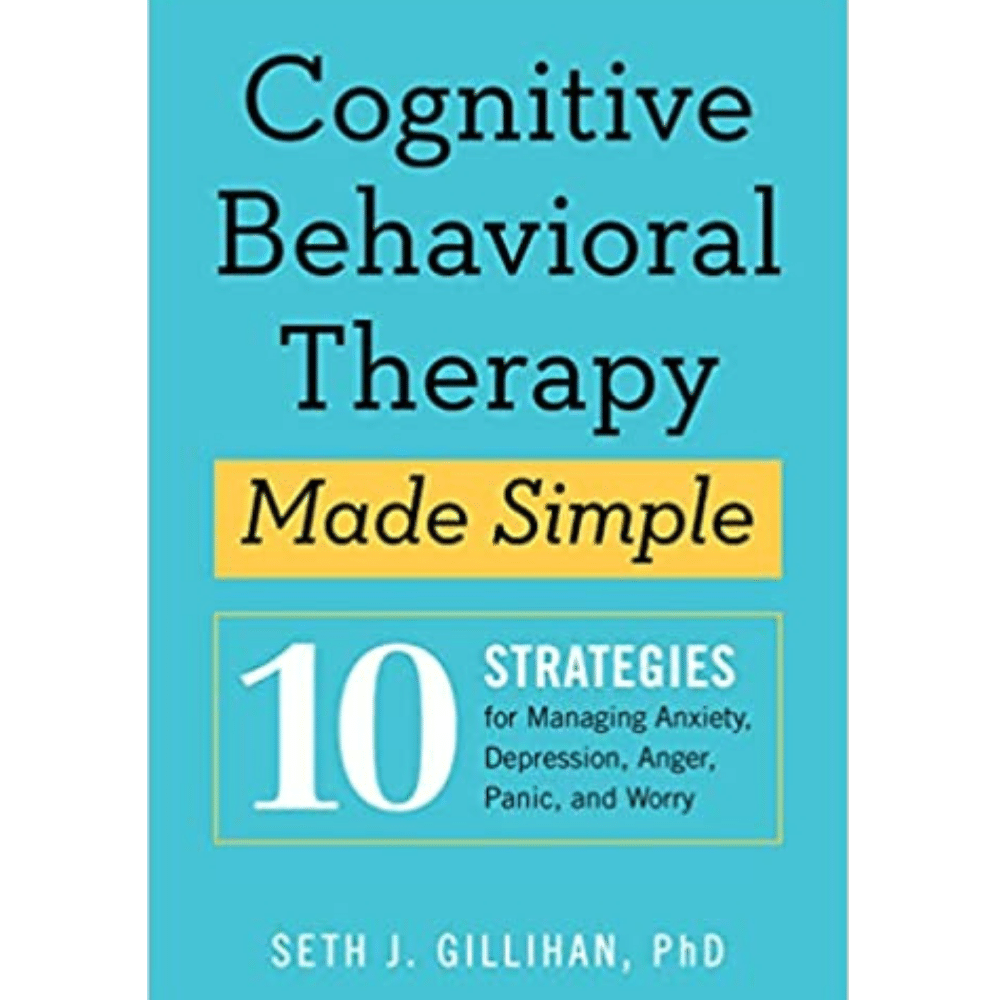
Cognitive Behavioral Therapy Made Simple
10 Strategies for Managing Anxiety, Depression, Anger, Panic, and Worry Paperback – May 22, 2018
Why We Love It:
Cognitive Behavioral Therapy Made Simple is the perfect workbook for anyone looking to manage anxiety, depression, or other mood-related conditions.
This workbook is packed with cognitive behavioral therapy strategies that will help you to let the healing begin. It includes 10 soothing strategies to help you get lasting relief from anger, panic, stress, and more.
Plus, it offers positive self-evaluations to track your progress and reflect on what you've learned.
What You Should Know:
Cognitive Behavioral Therapy Made Simple is an easy-to-understand workbook that offers everything you need to apply CBT principles to your daily life. It can be used in tandem with clinical cognitive behavioral therapy or on its own.
Plus, it's a great resource for anyone looking to grow as a person, overcome challenges, and boost their overall health and well-being. Get your copy of Cognitive Behavioral Therapy Made Simple today!
FAQ:
Cognitive Behavioral Therapy (CBT) is a powerful tool for helping people cope with mental health issues, but it can be hard to know where to start.
If you're considering CBT for yourself or a loved one, it's important to understand the basics and find a qualified therapist. But it can be difficult to know where to start.
We've compiled a list of the most frequently asked questions about CBT so you can know more about this type of therapy and make an informed decision.
What is CBT?
CBT stands for Cognitive Behavioral Therapy, and it is a type of psychotherapy that focuses on how our thoughts, feelings, and behaviors interact and influence one another. CBT helps individuals identify and challenge negative thoughts and behaviors, and replace them with more adaptive and helpful ones. It is a goal-oriented, evidence-based approach to treatment that can help people manage a variety of mental health issues, including depression, anxiety, and substance use disorders.
What Causes CBT?
CBT is typically caused by a combination of environmental, psychological, and biological factors. Environmental factors can include stressful life events, such as the death of a loved one or a major change in one’s life. Psychological factors can be related to negative thinking patterns or beliefs, such as feeling like you are not good enough or that you are not in control of your life. Biological factors can include genetic predispositions, changes in brain chemistry, or imbalances in hormones.
Is CBT preventable?
Yes, CBT is preventable. Cognitive Behavioral Therapy (CBT) is a form of psychotherapy that helps individuals recognize and change negative thoughts and behaviors. It is effective in treating a variety of mental health issues such as depression, anxiety, and eating disorders.
Preventing CBT starts with recognizing the signs and symptoms of mental health issues and seeking help when needed. Additionally, developing healthy coping skills, such as mindfulness, journaling, and physical activity, can help prevent the onset of mental health issues. Finally, having a strong support system and engaging in meaningful activities can also help prevent the onset of mental health issues.
What is cognitive behavioral therapy?
Cognitive behavioral therapy (CBT) is a type of talk therapy that focuses on how your thoughts, feelings, and behaviors interact and affect one another. It is a goal-oriented form of therapy that helps you identify and challenge negative patterns of thinking and behavior, and replace them with healthier, more adaptive ones. CBT can help you manage a wide range of mental health issues, such as depression, anxiety, and substance use disorders. It can also help you cope with day-to-day stressors and improve your overall sense of well-being.
What is an example of cognitive behavioral therapy?
Cognitive Behavioral Therapy (CBT) is a type of psychotherapy that focuses on changing a person's thoughts, feelings, and behaviors to help them manage their mental health. An example of CBT would be challenging negative thought patterns, such as "I'm not good enough" or "I can't do anything right" and replacing them with more positive and realistic thoughts. CBT also involves learning new skills to cope with stress, such as relaxation techniques, problem-solving skills, and assertiveness.
Can you do CBT yourself?
Yes, you can do cognitive-behavioral therapy (CBT) yourself. Self-directed CBT involves engaging in activities such as reading self-help books, using online resources, and engaging in activities such as journaling, meditation, and mindfulness. It is important to note, however, that self-directed CBT is not a substitute for professional help and should not be used as a replacement for professional treatment. If you are struggling with a mental health issue, it is important to seek professional help from a licensed mental health professional.
Conclusion:
We hope this review has helped you find the best cognitive behavioral therapy tools for your needs. Whether you’re a mental health professional or a patient looking to learn more about CBT, these five options are sure to give you the insights and guidance you need.
These books offer comprehensive, evidence-based approaches to CBT that can help you manage stress, reduce anxiety, and improve your overall wellbeing.
So go ahead and pick the one that’s right for you and get ready to take the first step on your journey to better mental health!

